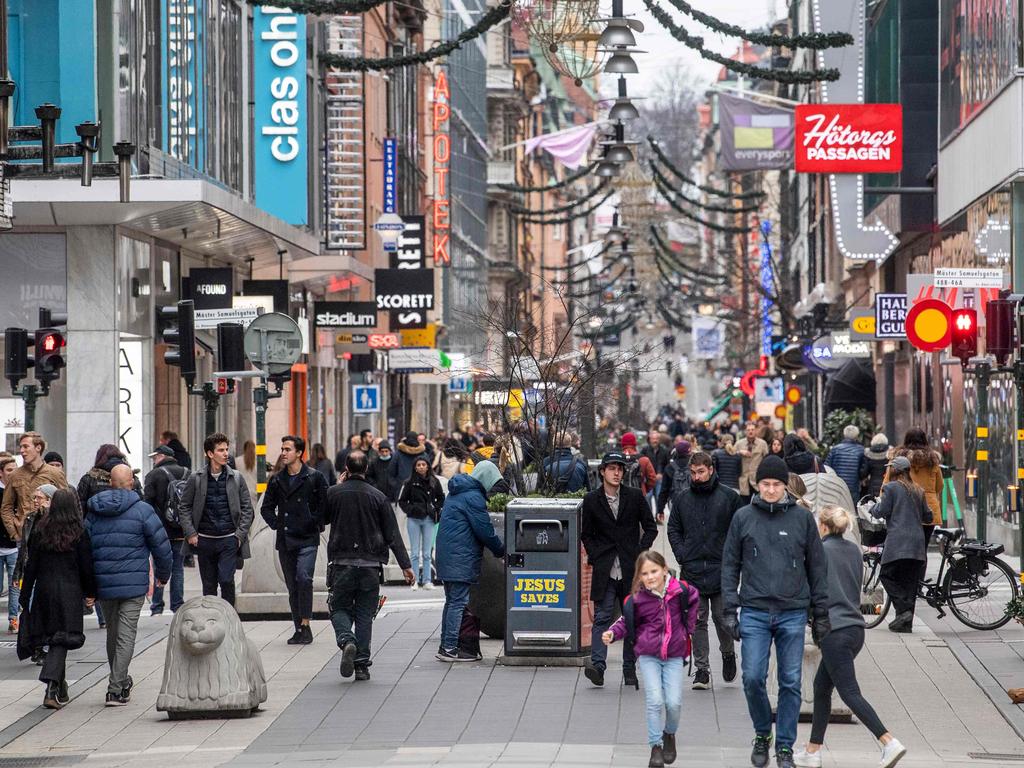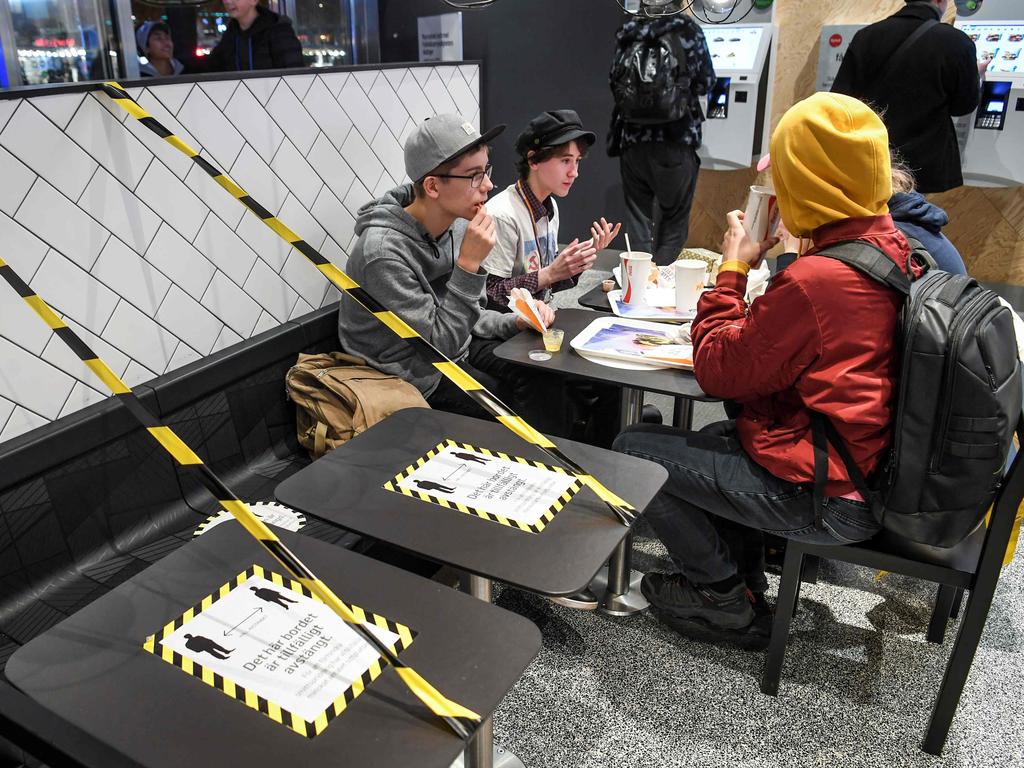Coronavirus: Second wave destroys Sweden’s COVID strategy
Early on it looked like Sweden’s controversial no lockdown strategy was working, but now a fresh wave of infection has brought chaos.
Early on in the coronavirus pandemic, Sweden’s controversial decision not to go into lockdown looked like it might be working, but now the country is struggling under an aggressive second wave of infections.
When Sweden decided to break ranks from the majority of other countries and try and achieve herd immunity rather than introducing restrictions it sparked tough criticism from experts and governments around the world.
The controversial approach meant COVID-19 cases and deaths in the country initially skyrocketed but by July the daily figures had dropped dramatically.
By mid-July deaths were in the single figures, with the whole country faring even better than Victoria, which was dealing with its second wave of cases.
RELATED: Swedish experience sparks vaccine fears

But now the country is having to rethink its approach, with hospitals across the country nearing their intensive care capacity limits due to a fresh wave of infections.
Case numbers started to increase in September, with authorities struggling to understand why.
Daily infection rates have increased dramatically since then, with 6051 new cases recorded on Saturday and more than 8000 cases recorded on Friday.
Sweden now has more than 320,000 confirmed cases and more than 7514 confirmed fatalities.
The country’s capital, Stockholm, has been hit hardest, with ICU beds reaching 99 per cent capacity this week for the first time since the pandemic began.
On Wednesday there were 814 COVID-19 patients being treated in Stockholm hospitals, with 83 in intensive care.
“That corresponds more or less to all intensive care beds we normally have,” the region’s health and medical care director Bjorn Eriksson said during a press conference.
“We are in an extremely serious situation right now and we need help.”
RELATED: Virus expert debunks biggest COVID-19 vaccination myth

With the situation getting more dire each day, Prime Minister Stefan Lofven was forced to back track on the country’s herd immunity plan and impose tough restrictions.
A ban has been imposed on public gatherings and events of more than eight people.
Hospitality venues must also adhere to this limit by only sitting eight people or less at a table.
The government also announced a ban on serving alcohol at restaurants and bars after 10pm, with the rule in place from November 20 to the end of February.
Last month Mr Lofven urged people to stay home and limit their social interactions.
“It’s going to get worse. Do your duty and take responsibility for stopping the spread of the virus,” he said.
“Don’t go to the gym, don’t go to the library, don’t have parties. Cancel.”
Mr Lofven said the new rules had to be introduced because people had become more complacent and weren’t following COVID safety guidelines.
“In the spring, we saw large compliance. It was enough to have recommendations to get most people to keep their distance and cancel their plans. Now there is less compliance,” he said.
The Swedish government also indicated this week that it will seek approval from parliament to impose more restrictions, with the malls and gyms expected to be next areas to be hit with restrictions.
RELATED: Has coronavirus made you nervous about travelling? Have your say in our poll

Sweden’s coronavirus situation in the lead up to Christmas looks a lot different than it did a few months ago, with some experts even suggesting in September that Sweden may have successfully reached herd immunity.
Professor of biocomplexity at Niels Bohr Institute in Copenhagen, Kim Sneppen, said the partial immunity already built could be enough to contain the spread.
“There is some evidence that the Swedes have built up a degree of immunity to the virus which, along with what else they are doing to stop the spread, is enough to control the disease,” Prof Sneppen told Danish newspaper Politiken.
Before Sweden saw its most recent surge in cases, another health expert said the drop in cases and deaths was a “vindication” of the country’s herd immunity strategy.
However, a study published in August went against these claims, finding that Sweden had actually “failed” in its bid to achieve herd immunity.
Swedish health authorities initially predicted that 40 per cent of the Stockholm population would have contracted the disease and acquired antibodies by May this year.
But the study, published by the Journal of the Royal Society of Medicine, found by that time only about 15 per cent of the population had been infected.
In conjunction with this, research has shown that asymptomatic people or those with a mild infection are much less likely to develop lasting antibodies.
“It is clear that not only are the rates of viral infection, hospitalisation and mortality [per million population] much higher than those seen in neighbouring Scandinavian countries, but also that the time-course of the epidemic in Sweden is different, with continued persistence of higher infection and mortality well beyond the few critical weeks period seen in Denmark, Finland and Norway,” said researcher Dr. David Goldsmith, a retired physician in London.




